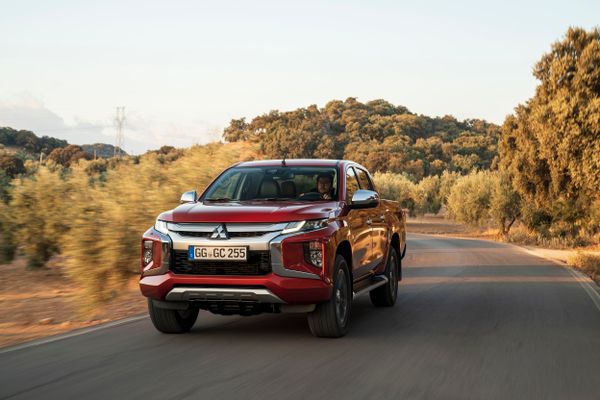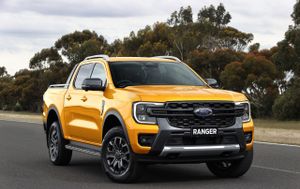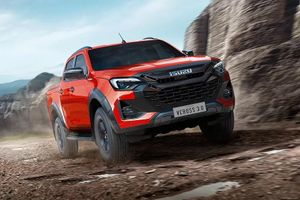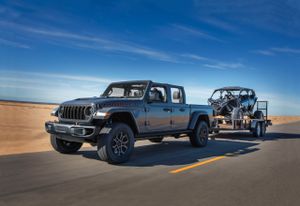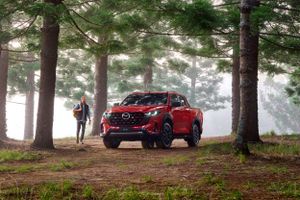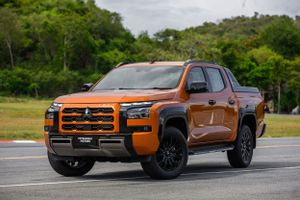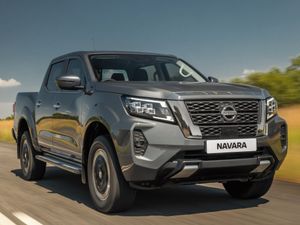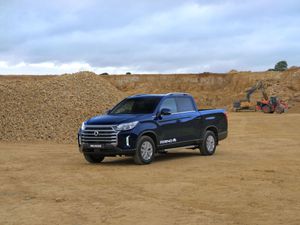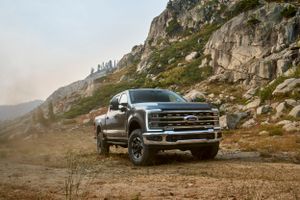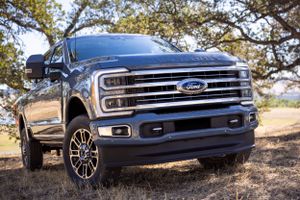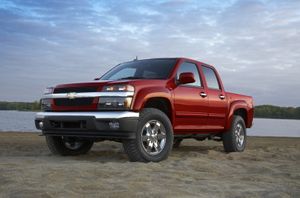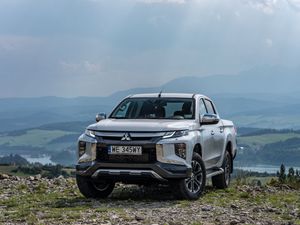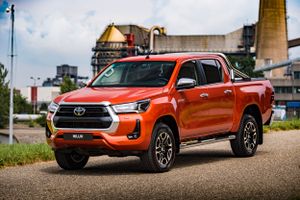Comparison of Mitsubishi L200 and Ford Ranger Raptor
Comparison of Mitsubishi L200 and Ford Ranger Raptor
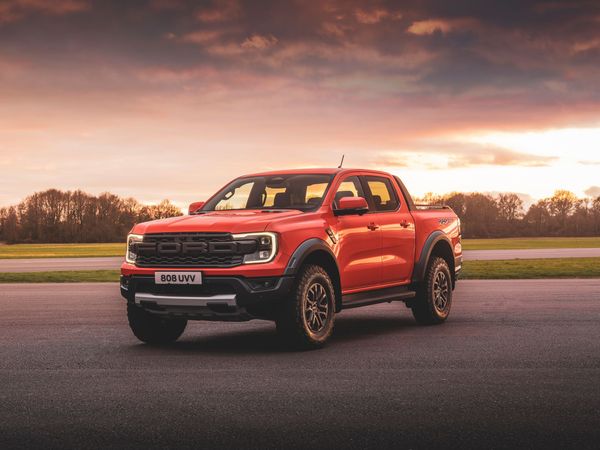
Ford Ranger Raptor
Price not determined
No one is selling yet
Characteristics
Mitsubishi L200 and Ford Ranger Raptor
Transmission
Automatic
Automatic
Number of gears
6
10
Type of drive
RWD
4x4
Top speed
174 km/h
180 km/h
Acceleration to 100
7.9 sec
Fuel tank capacity
75 l
80 l
Curb weight
2 454 kg
Max weight
2 920 kg
3 130 kg
Length
5 225 mm
5 381 mm
Width
1 815 mm
1 922 mm
Height
1 775 mm
2 028 mm
Wheelbase
3 000 mm
3 270 mm
Front track width
1 520 mm
1 710 mm
Rear track width
1 520 mm
1 710 mm
Trunk volume min
1 061 l
Wheel size
205/80 R16
245/70 R16
245/65 R17
245/70 R16
245/65 R17
285/70 R17
Average consumption
13.8 l
ECO class
Euro 5
CO2 emissions
315 g/km
Engine type
Diesel
Gasoline
Engine location
Front, longitudinal
Front, longitudinal
Engine power system
Direct injection (direct)
Engine capacity
2268 cm³
2956 cm³
Type of boost
Turbo
Turbo
Cylinder arrangement
Inline
V-shaped
Number of cylinders
4
6
Valves per cylinder
4
4
Compression ratio
14.4
10.5
Bore and stroke
86 × 96.7 mm
85.4 x 86 mm
Maximum power
150 (110 ) 3500
288 (211 ) 5500
Maximum torque N⋅m
408 1750-2250
491 2300
Front suspension
Independent, spring
Independent, spring
Rear suspension
Dependent, leaf spring
Dependent, spring
Front brakes
Ventilated disc
Ventilated disc
Rear brakes
Drum
Disс
Clearance
220
27
Trim version
Mitsubishi L200 and Ford Ranger Raptor
Driver's airbag
Passenger airbag
Side front airbags
Window airbags (curtains)
Driver's knee airbag
Keyless central locking
Immobilizer
Isofix for the back row
Cruise control
Cruise control
Adaptive Cruise Control
Anti-lock braking system (ABS)
Electronic stability program (ESP)
Hill start assist (HAS)
Emergency brake assist (BAS, EBD, EBA)
Automatic slip regulation (ASR)
Vehicle stability management system (VSM)
Collision avoidance system
Pedestrian detection system
Cyclist detection system
Lane departure warning system
Blind spot monitoring system
Rear Cross-Traffic Collision Warning and Collision-Avoidance Assist (RCCW, RCCA)
USB
Bluetooth
Navigation system
USB-C
Sound
Audio system
Audio system
Leather gear shift
Leather steering wheel
Front center armrest
Power window
Sports front seats
Seat adjustment
Driver's seat adjustment
Front seat adjustment
Seat trim
Fabric seats
Combined seat trim
Side mirrors
Steering wheel height adjustment
Steering wheel reach adjustment
Power steering
Power steering
Active power steering
Front parking sensors
Rear parking sensors
Air conditioner
Air conditioner
Dual-zone climate control
On-board computer
Multifunction steering wheel
Digital instrument cluster
Power mirrors
Headlights
Matrix headlights
Daytime running lights
Fog lamp
Diameter
R16
R17
Material
Alloy
Alloy
Photos
Mitsubishi L200
Ford Ranger Raptor
Comparison of Mitsubishi L200 with other cars
Comparison of Ford Ranger Raptor with other cars
Today on the Market

Mitsubishi L200, 2010
₪ 20 000

Mitsubishi L200, 2011
₪ 30 000

Mitsubishi L200, 2011
₪ 32 000

Mitsubishi L200, 2012
₪ 35 000

Mitsubishi L200, 2011
₪ 63 000

Mitsubishi L200, 2015
₪ 70 000

Mitsubishi L200, 2017
₪ 80 000
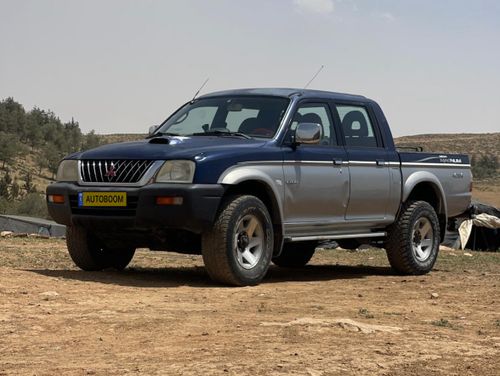
Mitsubishi L200, 2002
₪ 16 000
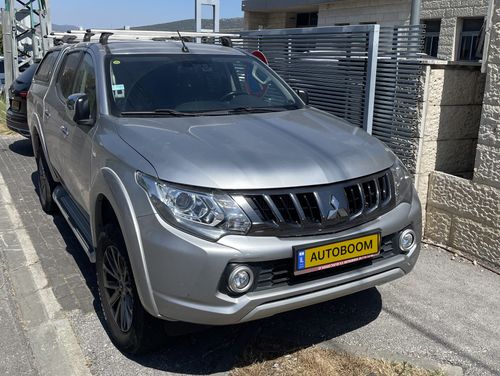
Mitsubishi L200, 2019
₪ 140 000
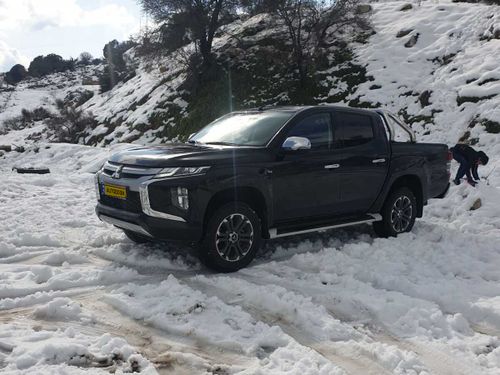
Mitsubishi L200, 2021
₪ 165 000
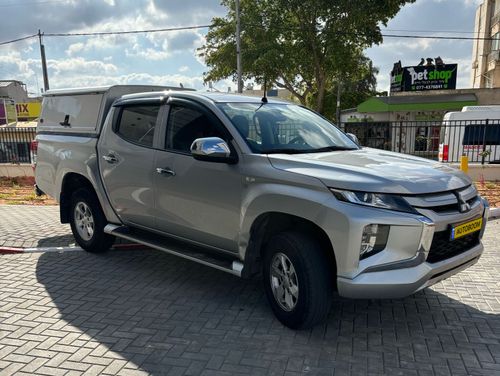
Mitsubishi L200, 2021
₪ 160 900
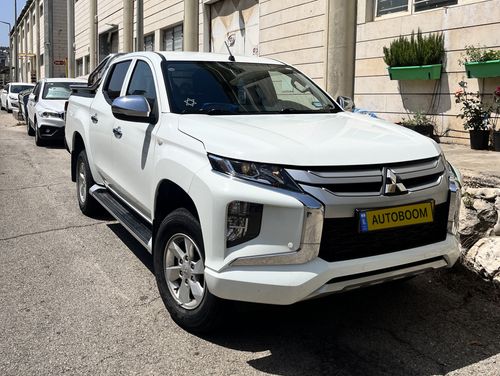
Mitsubishi L200, 2021
₪ 152 000
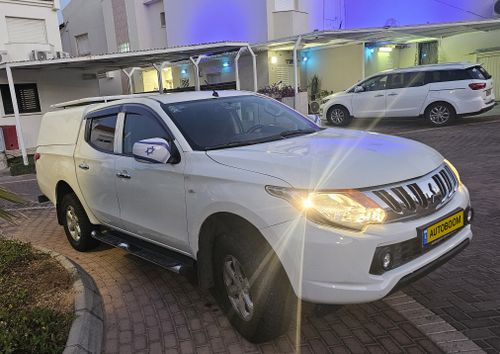
Mitsubishi L200, 2016
₪ 125 000
Compare similar cars Mitsubishi L200 and Ford Ranger Raptor
Mitsubishi L200 and Ford Ranger Raptor are two popular cars, each with its own unique advantages and features. The choice between Mitsubishi L200 and Ford Ranger Raptor depends on the driver's needs and preferences.Mitsubishi L200 and Ford Ranger Raptor are two popular cars, each with its own unique advantages and features. The choice between Mitsubishi L200 and Ford Ranger Raptor depends on the driver's needs and preferences.
